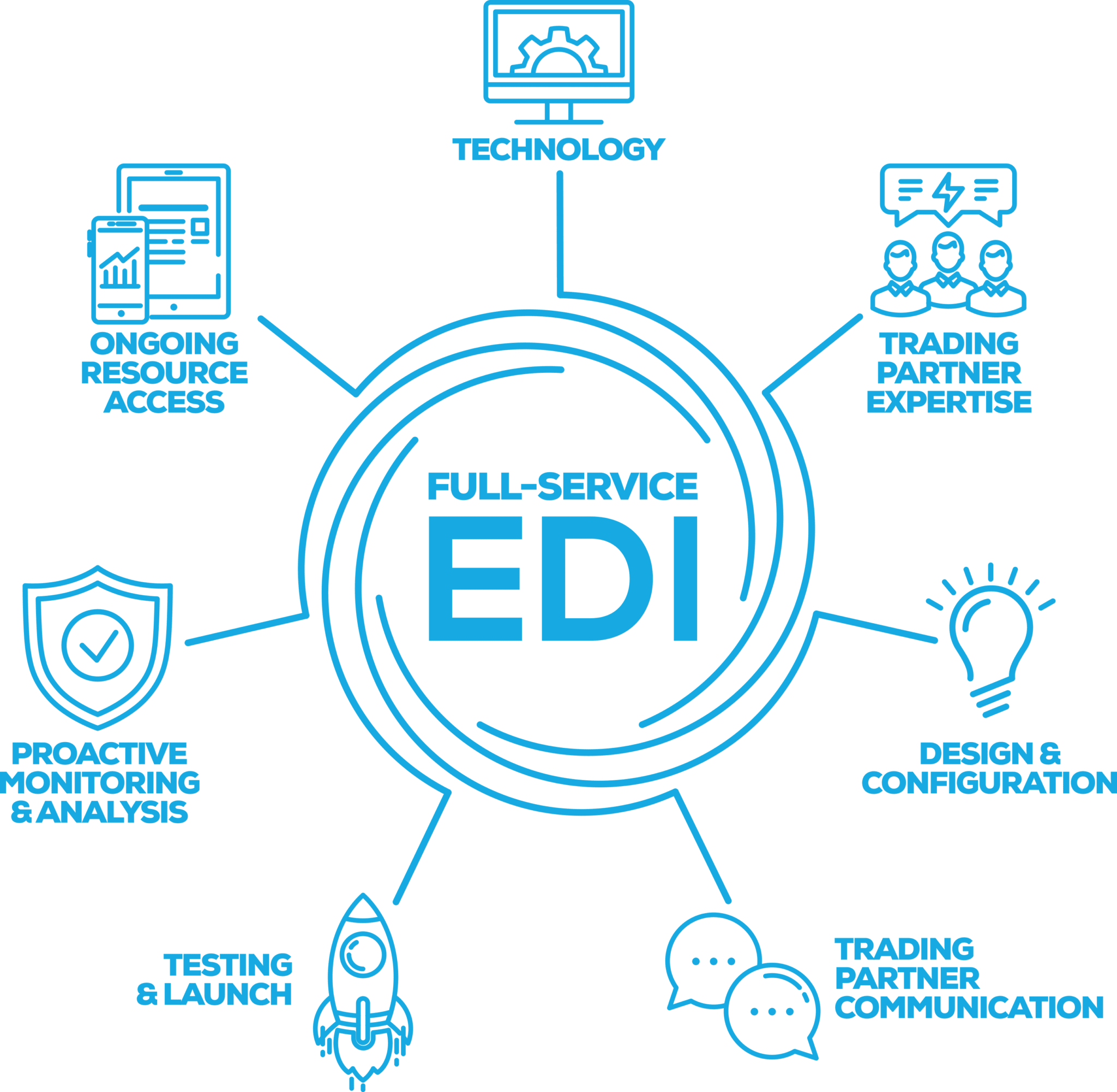EDI Systems: Key Considerations Before You Buy
Have you been researching “What is an EDI system?” or “How to set up an EDI system?” If so, you’re probably aware there are countless EDI systems available in the market today that sound very similar.
In fact, a Google search for “EDI system” leads to over 82 million results!
What is an EDI system?
An EDI system enables the exchange of data between businesses using a standardized format called Electronic Data Interchange. The objective of an EDI system is to replace manual, paper-based communication methods with electronic communication. In EDI transactions, information moves directly from one company’s business system to another company’s business system without human intervention. Benefits of using an EDI system include reduced costs, efficiency gains and improved customer experience.
Although the multitude of EDI systems may sound similar, there are significant differences between providers. The most straightforward way to categorize EDI systems is by whether they are a managed service or a full-service solution.
What’s the difference between managed EDI services and full-service EDI?
A managed EDI service is an EDI solution in which the EDI provider is responsible for developing and maintaining the core technology, while the customer’s internal staff is responsible for the day-to-day customization, optimization and operations of the technology.
Full-service EDI includes both the cloud-based solution and associated staffing resources that customize, optimize and operate the technology. In this model, the EDI provider carries out a complete business function on behalf of the customer. Full-service EDI is sometimes called EDI outsourcing.
Which type of EDI system is right for your business?
How can you tell whether your business needs managed services or a full-service EDI solution? The answer comes down to whether EDI is a core competency. In other words, does having EDI capabilities in-house create a competitive advantage for your company? Is having a dedicated team of EDI experts on staff something that you want for your business?
If EDI is a core competency of your business, managed EDI services are a good choice. For many companies, EDI is an important requirement of doing business, but it is not a core competency. Instead, their core competencies revolve around activities that further their competitive advantage through product innovation, service delivery or other distinctive capabilities. For these businesses, a full-service EDI solution is the best option.
How can a full-service EDI provider help me?
Full-service EDI providers take ownership of understanding the EDI requirements and business rules of your retail customers, which are constantly changing. A full-service provider also proactively monitors and optimizes your EDI system, so you get the most value from your EDI system without having to understand the technical details yourself.
Full-service EDI solutions like SPS Fulfillment have seven primary components:
- Technology
- Trading partner expertise
- Design and configuration
- Trading partner communication
- Testing and launch
- Proactive monitoring and analysis
- Ongoing resource access
A truly full-service provider will be able to describe their capabilities in all of these areas. This will give you a clear picture of what ongoing tasks the provider will handle and what tasks (if any) your team will be responsible for. Here’s a handy EDI RFP template to help you in your search.
Get more insight on EDI systems and the seven components of full-service EDI by downloading our white paper – Evaluating Your EDI Options: Seven Building Blocks of Full-Service EDI.
- A comprehensive overview of business manufacturing problems - November 19, 2024
- The importance of effective demand planning - November 19, 2024
- How manufacturers can eliminate the stress of frequent change - November 19, 2024


RELATED POSTS
How EDI service providers help unlock...
Four Strategies for Meeting Amazon’...
EDI 820: What are the Benefits of EDI...